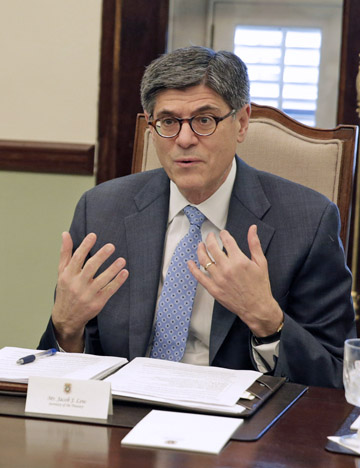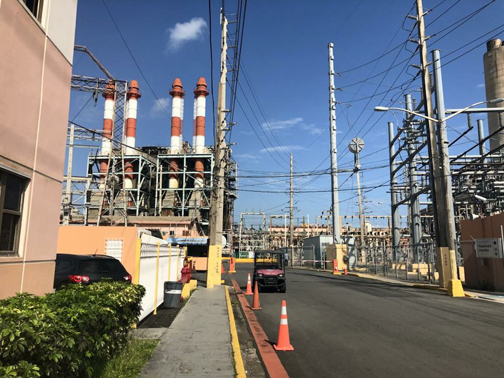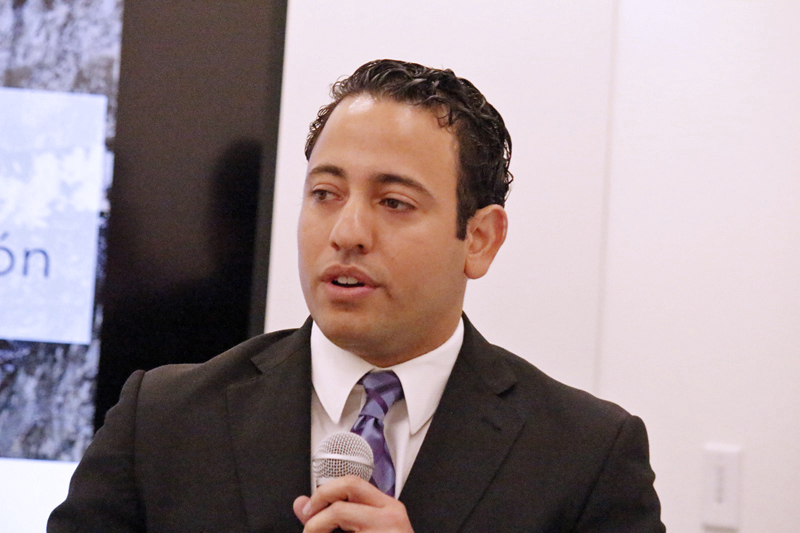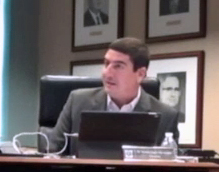U.S. Treasury offers Board ongoing technical assistance

Saying “resolving the crisis in Puerto Rico remains a top priority for the U.S. Treasury Department,” agency Secretary Jacob Lew sent a letter to the Financial Oversight and Management Board offering ongoing technical assistance.
Furthermore, Lew said Treasury would be available to discuss with the Board more specific views of the Fiscal Plan proposed by the Commonwealth of Puerto Rico.
In the letter directed toward Board Chair José Carrión, Lew commended the Board’s actions to advance the process established by the Puerto Rico Oversight, Management, and Economic Stability Act (PROMESA).
“This critical legislation has provided Puerto Rico with the time and tools necessary to promote recovery from the ongoing fiscal and economic crisis,” he said. “I am pleased that the Board has begun its important work, including holding two meetings, planning its third meeting in Puerto Rico, and requesting stakeholder input on the Commonwealth’s proposed Fiscal Plan.”
He also said the Board’s decision to require coverage of all Commonwealth-level entities in the proposed Fiscal Plan “represents an appropriate, holistic approach to the crisis. Furthermore, I am pleased that the Board has adopted bylaws with transparency provisions to facilitate public oversight of its work.”
He also gave a nod to Gov. Alejandro García-Padilla for his “timely submission” of the plan.
“While these actions are encouraging, more remains to be done. Time is of the essence. The Board and the Commonwealth must act with urgency to carry out their responsibilities as outlined in PROMESA,” Lew said.
“We urge the Board and Commonwealth to work together quickly to certify a Fiscal Plan. This is a vital next step to allow the commencement of restructuring negotiations with creditors,” the U.S. government official said.
Lew went on to outline the U.S. Treasury’s assessment of the proposed Fiscal Plan — which the Board essentially rejected during Friday’s meeting in Fajardo. The U.S. Treasury’s letter is dated Nov. 16, two days before the Board’s third meeting.
“I believe that PROMESA’s 14 Fiscal Plan requirements, together with the comprehensive approach that the Board has taken to cover all tax-supported entities in the proposed Plan, provide a credible framework to guide the Commonwealth’s policy choices,” he said, listing a number points that can be applied to Puerto Rico’s fiscal planning.
Key points needing attention
The Commonwealth needs to achieve a sustainable debt level through credible restructuring, “to remove the overhang of uncertainty on the economy, and to create breathing space for Puerto Rico to implement growth-enhancing reforms, he said.
“Conversely, the absence of a credible debt restructuring will lead to excessive reliance on fiscal austerity that proves self-defeating to growth and debt sustainability,” Lew said, adding the proposed plan lacks a formal debt sustainability analysis, “although one must be included in the certified Fiscal Plan as required by the PROMESA legislation.”
Lew also suggested that austerity alone is “a self-defeating remedy,” and that while fiscal discipline is often necessary in the aftermath of an economic crisis during an extended period of economic contraction, there are limits to the scale and pace of budget cuts and tax increases that can be achieved without further damaging growth.
“Given this reality, the proposed Fiscal Plan’s adequate funding for vulnerable constituencies and the delivery of essential services are both critical. In addition to providing support to the economy, these efforts can also help to curb outmigration and preserve the tax base, both vital to stabilizing fiscal balances and lifting GDP over the medium-term,” he said.
Sustainable economic recoveries require an appropriate balance of fiscal stimulus in the short-term to lift confidence and investment, coupled with efforts to promote growth potential over the medium-term, he said.
“The latter effort should include a well-sequenced agenda of structural measures and governance controls that attract capital back to the island. Puerto Rico must make it easier to do business, increase workforce participation, and create the conditions that will allow Puerto Rico to compete in the global economy,” he said.
The U.S. Treasury official also suggested adopting realistic macroeconomic projections, which are “essential underpinnings of any successful plan.”
“The proposed Plan’s macroeconomic projections, with respect to both real growth and inflation, are higher than levels that have been realized in Puerto Rico in more than a decade,” he noted.
The plan that is ultimately certified by the Board should include an analysis of downside risks to growth so as to avoid the material risk of overstating the amount of debt that can be sustained by the economy’s future performance, Lew said.
He also said the Commonwealth and U.S. Congress must work together to resolve Puerto Rico’s long-standing structural healthcare inequities and strengthen incentives to promote economic development on the island.
“The projected exhaustion of Affordable Care Act (ACA) funds in early 2018 will materially reduce the Commonwealth’s revenues and impair access to health care for up to 900,000 Americans living in Puerto Rico,” he said, reiterating that U.S. Treasury supports federal legislation that would give Puerto Rico healthcare parity with the states and pro-growth tax measures such as the Earned Income Tax Credit.
Finally, he said that while PROMESA’s automatic stay provides breathing room for the Board’s deliberation of numerous outstanding issues, its Feb. 15, 2017 expiration is quickly approaching.
“The Board should make maximum use of the powers given to it by Congress to pursue consensual negotiations and, if unsuccessful, Title III filings before the stay’s expiration,” he said.
“Timely certification of the Fiscal Plan will promote voluntary negotiations and should be the Board’s top priority; additionally, prompt certification of a fiscal plan will also permit Puerto Rico to begin its annual legislative budgeting process,” Lew concluded.









